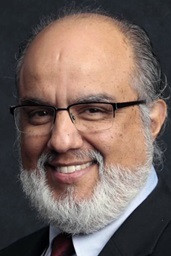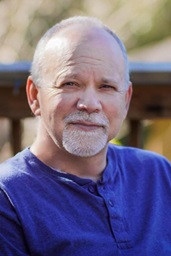Past and present Methodists have used legislative power to impose moral certainty on others. In some

The Rev. Darryl W. Stephens
cases, their mistakes are grievous enough to warrant acts of repentance by later generations. In other cases, Methodists cede their moral principles, conforming to the world around them. How will future generations judge the present-day actions of United Methodists?
It used to be simpler. Debt, drugs and divorce defined the boundaries of clergy ethics. Methodist pastors were expected to pay their debts, abstain from alcohol and tobacco and avoid the sin of divorce. To violate any of these expectations was to violate the clergy covenant. If you did not agree, you did not sign on.
Methodist congregations knew what to expect, too. Methodism stood for Prohibition. Methodists abstained from alcohol. Period. Methodists did not condone divorce, except for the one scriptural cause taught by Jesus himself (Matthew 5:32). Through personal moral example and stricter laws, Methodism promoted the betterment of society.
Methodist clergy were expected to model high standards of morality in 1933, just as they are today. What should a United Methodist do, though, when there is a conflict between church law and moral conscience?
The question is timely. On May 31, the Rev. Phil Wogaman of the Baltimore-Washington Annual Conference surrendered his ordination credentials in protest of the treatment of LGBTQ people seeking ordination in The United Methodist Church.
Church law currently prohibits the ordination of “self-avowed, practicing homosexuals.” As with the rule about divorce, supporters of this law point to scripture for justification (Leviticus 18:22; Romans 1:26-27; 1 Corinthians 6:9). To understand Wogaman’s action, let us take a closer look at Methodism during his lifetime.
Methodism of 1933, the year Wogaman was born, was fractured. What is now The United Methodist Church was then five different denominations. Some ordained women; some did not. Some segregated African-Americans; some did not. Methodism in the U.S. was regionally divided, the result of a separation over slavery and issues of authority and power in the church. Three branches of Methodism reunited in 1939.
Women and African-Americans bore the burden of political compromise, which included a racially segregated jurisdictional structure and the loss of previously held clergy rights for women. Women’s ordination was also a casualty of the formation of the Evangelical United Brethren Church in 1946.
In both cases, a power-wielding majority claimed scriptural support (Genesis 9:22-27; 1 Corinthians 14:34-35) to enact laws pertaining not to themselves but to others. A personal morality focused on debt, drugs and divorce proved insufficient for addressing the challenges of justice and equality.
The history of Methodist morals over Wogaman’s lifetime teaches that Methodists do not always have a clear sense of God’s justice in volatile times. When we ask, “What does the Lord require?” the answer we find in scripture has something to do with justice, kindness, and humility (Micah 6:8).
How do we tell the difference between God’s justice and human hubris? The moral challenge is discerning when the church is being conformed to the world and when it is being transformed: “Do not be conformed to this world, but be transformed by the renewing of your minds, so that you may discern what is the will of God—what is good and acceptable and perfect” (Romans 12:2).
Discerning justice in the present requires prophetic insight. We have examples of such leadership in the Methodist tradition. Georgia Harkness, Teressa Hoover, Maxie Dunnam and James Thomas each found a way, through God’s power, “to resist evil, injustice, and oppression in whatever forms they present themselves” (as expressed in our current baptismal covenant, United Methodist Hymnal, p. 40). A group of white Methodist pastors in Mississippi spoke up for racial justice and against segregation in 1963.
Methodism dismantled its segregated structure in 1968 and engaged in an “Act of Repentance for Racism” in 2000. The Methodist Church granted full clergy rights to women in 1956 — 90 years after Helenor M. Davisson became the first ordained woman in the Methodist tradition. Through their efforts and those of many others, Methodism inched its way closer to the baptismal reality that Paul described: “There is no longer Jew or Greek, . . . slave or free, . . . male and female; for all of you are one in Christ Jesus” (Galatians 3:28). Is Wogaman among these prophetic leaders?
We do not know how future generations of Methodists will judge Wogaman’s protest. Was he conforming to the world or discerning the will of God? It is much easier to identify justice in retrospect than in the present.
Conflicted over justice, perhaps United Methodists today can agree to love kindness. Jesus gave only one new commandment in the Gospel of John: “Just as I have love you, you also should love one another” (John 13:34). It does not take a prophet to identify love (1 Corinthians 13:4-7). Christian ethics in volatile times means, at the least, living out this commandment to love each other. Walking humbly with God requires no less.
Stephens is director of United Methodist studies at Lancaster Theological Seminary and a clergy member of the Texas Annual Conference. This article draws upon his book, Methodist Morals: Social Principles in the Public Church’s Witness (University of Tennessee Press). To read more United Methodist News, subscribe to the free Daily or Weekly Digests.
Like what you're reading? Support the ministry of UM News! Your support ensures the latest denominational news, dynamic stories and informative articles will continue to connect our global community. Make a tax-deductible donation at ResourceUMC.org/GiveUMCom.



